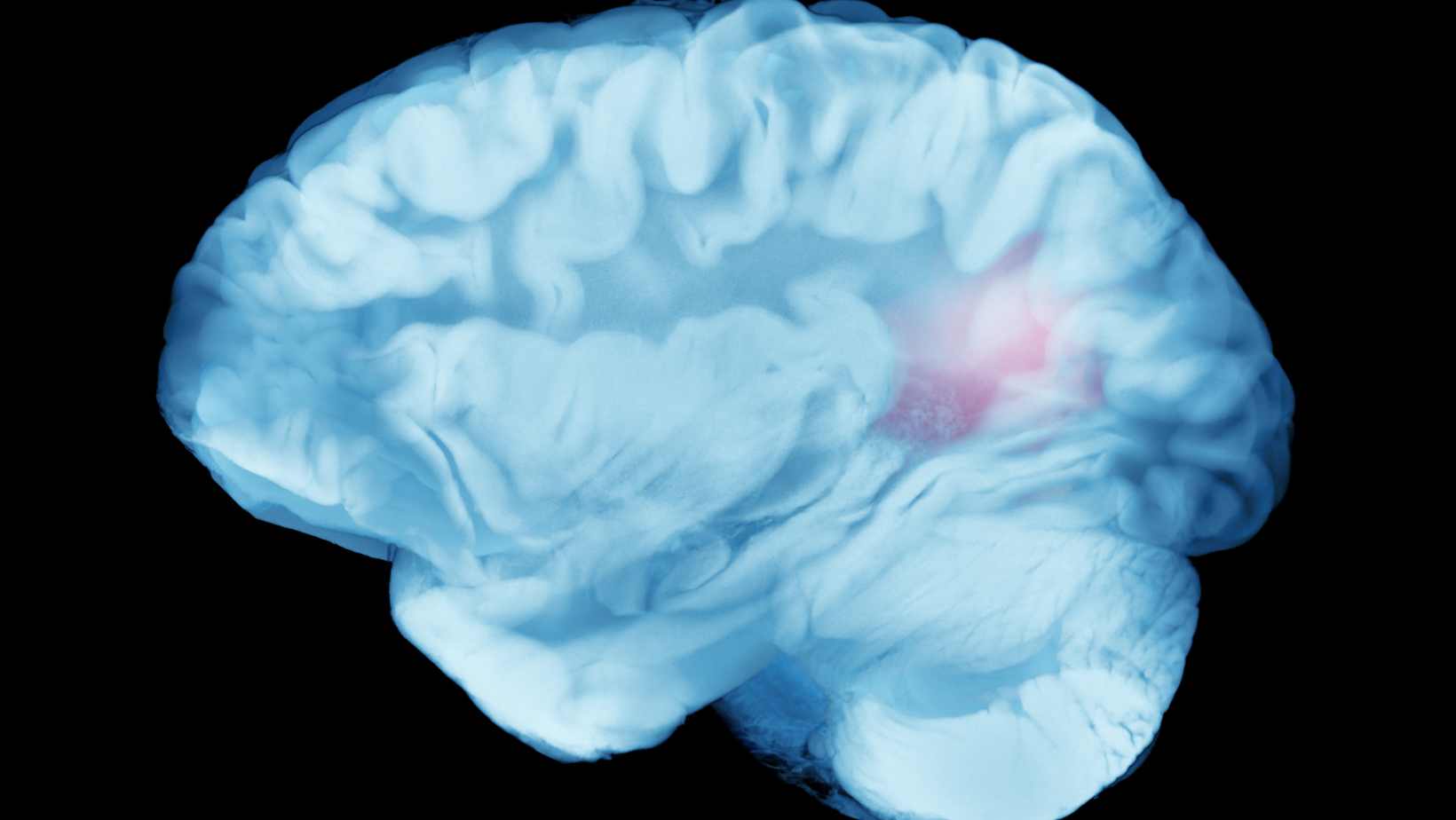Alzheimer’s is a neurological disorder that impedes the brain’s memory and ability to function. More commonly known as the memory loss disease, the prevalence of Alzheimer’s disease is worldwide. A person grappling with Alzheimer’s disease, the brain cells start to deplete to a stage where the brain’s size shrinks and the person’s memory is completely diminished. In Alzheimer’s disease, nervous system development is severely affected.
In this blog, we will break down how nerves shape the severity of Alzheimer, what research says about their role, and how supporting your nervous system might just slow things down.
Table of Contents
ToggleWhat is Alzheimer’s Disease?
Alzheimer is the most common type of dementia. It causes memory loss, confusion, and changes in behavior. It mainly affects older adults, but some people develop it as early as their 40s.
There are two main types:
- Early-Onset Alzheimer: Appears before age 65. Less common.
- Late-Onset Alzheimer: More frequent. Usually appears after age 65.
According to the World Health Organization (2024):
- Over 55 million people worldwide live with dementia.
- Alzheimer accounts for 60–70% of those cases.
This shows how widespread and serious Alzheimer’s really is.
How Alzheimer’s Progresses in the Brain
Alzheimer does not happen overnight. It goes through stages that slowly harm brain function.
- Early Stage: Memory lapses and minor confusion.
- Middle Stage: Trouble recognizing people and performing tasks.
- Late Stage: Complete memory loss, disorientation, and difficulty moving or swallowing.
The disease mainly affects the hippocampus (memory) and cerebral cortex (thinking, judgment).
Nerve cells are vital for these brain areas. When nerves can’t communicate well, memory and cognition break down fast.
Symptoms of Alzheimer’s Disease
The symptoms of Alzheimer’s intensify over the years. Some of them are given below:
- Lack of energy or the zest to work
- Forgetting to carry out simple tasks
- Withdrawal from social life, signs of depression
- Trouble understanding or interpreting words, symbols, etc.
- Struggling in solving problems, remembering directions
- Slurred speech and trouble putting words to thoughts
- Confusion about the time and place, difficulty in remembering faces.
- Wandering
- Delusions
How does Alzheimer’s affect the body?
Alzheimer’s is a progressive disease, meaning that the symptoms keep getting worse as time passes by. While the cognitive effects of Alzheimer’s disease are known to everyone, very few know how debilitating effect Alzheimer’s can have on the person’s body. Alzheimer’s disease kills you slowly over a period of time. It doesn’t hit you all at once, it is a slow burn, which at first affects the memory and gradually all of you. Hence, many a time, one may miss the early signs of this disorder.
Some of the physical challenges that a patient may notice are –
- Loss of balance and poor coordination
- Trouble in movements such as standing, sitting
- Shuffling or dragging feet while walking
- Weak or stiffened muscles
- Fatigue
- Problems with bladder and bowels
- Difficulty in chewing or swallowing food
- Seizures or twitches
Physical symptoms start showing up during the moderate stage of Alzheimer’s.
Alzheimer’s and Phantom pain
Phantom pain is a condition where one perceives or imagines the pain from the part of the body which no longer exists. It is a common condition amongst dementia patients to perceive pain. The degeneration of brain cells makes it difficult for Alzheimer’s patients to explain or articulate pain. There’s no specific diagnosis of phantom pain, doctors can still identify them and treat them.
Autonomic Dysfunction and Alzheimer’s
Autonomic dysfunction is the medical condition where the nerves in the Autonomic Nervous System (ANS) are damaged. This condition is usually common in patients with Alzheimer’s disease. Autonomic nervous system regulates several involuntary movements in the body such as digestion, heart rate, respiratory rate, urination, etc. The effects of this disease can range from mild symptoms to severe life threatening conditions.
Some of the symptoms of Autonomic Dysfunction are –
- Dizziness and fainting
- Urinary problems, bladder issues, incontinence, etc.
- Sexual problems in both men and women
- Sweating abnormalities which indirectly affect the regulation of temperature in the body
- Blurry vision, sluggish pupil reaction.
- Difficulty in digesting and other digestive issues such as bloating, constipation, diarrhoea
- Problems with heart rate. Exercise intolerance where there is difficulty in maintaining heart rate.
- Tremors and muscle weakness
How Nerves and the Nervous System Relate to Alzheimer’s?
Nerves act like telephone wires in the brain. They carry messages using electrical and chemical signals. When these wires break, so does communication.
The Brain-Nerve Connection in Alzheimer’s
Neurons are brain cells that pass messages through tiny gaps called synapses. In Alzheimer, these connections start to fail.
- Synapses break down due to toxic proteins.
- Nerve cells begin misfiring or stop working.
- Information gets lost between brain regions.
Synapse loss is the strongest link to memory decline in Alzheimer.
Neuroinflammation
Glial cells, the brain’s support team, get triggered in Alzheimer. But instead of helping, they cause inflammation.
- Chronic inflammation damages nerve cells.
- It worsens memory problems and thinking ability.
- Over 90% of advanced Alzheimer patients have chronic brain inflammation Alzheimer’s.
Inflammation turns a bad situation worse.
Amyloid and Tau’s Impact on Nerves
Two proteins are behind most nerve damage in Alzheimer:
- Amyloid plaques form outside neurons and block connections.
- Tau tangles build up inside neurons, choking them.
Together, they:
- Cause nerve cells to misfire.
- Create dead zones in the brain.
- Destroy memory and emotions.
Nervous System as a Driver of Symptom Intensity
Your nervous system and Alzheimer’s are closely linked. When the nerves outside the brain start breaking down, the symptoms can feel worse.
- Peripheral nerves help control mood, sleep, and movement.
- When damaged, anxiety, confusion, and poor sleep rise.
- Emotions, attention, and focus all get affected.
The worse the nerve damage in Alzheimer’s, the harsher the experience.
Can Strengthening the Nervous System Slow Alzheimer’s Progression?
Many new studies suggest that boosting nerve health could slow Alzheimer’s progression. This gives hope to patients and families.
Emerging Research in Neuroplasticity
Neuroplasticity is the brain’s ability to form new nerve pathways. Even damaged brains can build new routes.
- Learning new skills boosts nerve signals.
- Physical exercise increases blood flow and brain connections.
- Music and memory games encourage nerve growth.
A healthy nervous system can mean slower Alzheimer decline.
Role of the Vagus Nerve and Brain-Body Signals
The vagus nerve links your brain to your body. It calms you, aids digestion, and controls inflammation.
New therapies like vagus nerve stimulation (VNS) show promise:
- Electrical pulses sent to vagus nerve improve brain focus.
- VNS trials showed 33% better memory recall in mild Alzheimer over 6 months.
- It reduces stress, improves sleep, and supports brain repair.
Nutrition and Nerve Health
What you eat feeds your nerves. The right nutrients can slow Alzheimer’s progression.
Key nutrients:
- Omega-3s: Protects nerves and supports cell membranes.
- B Vitamins (especially B12): Needed for nerve repair.
- Antioxidants: Fight harmful molecules that damage neurons.
Stat: People low in B12 have 2x the risk of cognitive decline.
This is why nutrition matters for both prevention and Alzheimer’s treatment and nerves.
Researchers have observed that Alzheimer’s disease can lead to autonomic dysfunction. The nerve damage in this disease interrupts the messages sent between the brain and the other organs, as well as areas of the autonomic nervous system. It is necessary to seek consultation from a professional for proper diagnosis and treatment. Consult the best neurologist in Delhi for quick recovery and enhanced treatment.
Insights From Dr. Chandril Chugh
The nervous system is not just part of Alzheimer, it can decide how fast it gets worse. Supporting nerve health can give patients a better quality of life.
If you or someone you love is facing Alzheimer, don’t wait. Talk to a neurologist early. Small changes now can slow the clock.
Dr. Chandril Chugh is a U.S.-trained, board-certified neurologist. He treats stroke recovery, migraines, memory problems, ADHD, and more. Book a consultation to discuss symptoms and prevention plans.
Also Read:

Dr Chandril Chugh
Dr. Chandril Chugh, a renowned American Board-Certified Neurologist, is just a click away. With years of global experience, he offers trusted neurological guidance online.
→ Book a consultation to discover which remedies suit your needs best.




